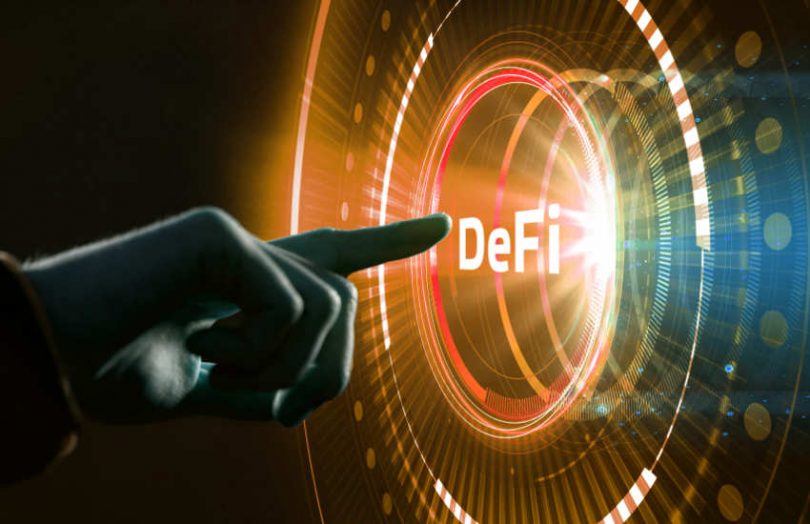
I’m talking so much about decentralised finance (DeFi) these days. I guess because I’m grappling with whether DeFi can replace CeFi (centralised finance). This tension is real. Can a world without borders on a global network replace the world with borders in a centralised network? It’s hard to say, but it’s fascinating to watch.
A new paper in this space hit my inbox and really raised the bar. CoinMarketCap and SpartanLabs released an insight into the state of DeFi, and I really enjoyed it. Therefore, here’s a few highlights:
Uniswap, Maker Protocol and Compound stood out among the first few explorers to seek out uncharted lands. These projects were created with a similar vision in mind, to create a decentralized and trustless financial system built to be censorship-resistant and economically inclusive, while uncompromising on its capabilities and efficiency.
Already, there are some interesting nuances here. Trustless – you can’t have finance without trust? Censorship- resistant – this is bandied around so much but what does it mean? You cannot censor the network? You cannot regulate it?
These questions are opposites of a centralised view that can be trusted and regulated. Can DeFi really take off?
At its peak in December 2021, DeFi had garnered a whopping $247.96 billion in total value locked (TVL) across multiple blockchain ecosystems and applications. However, and in the wake of all the macroeconomic uncertainties, geopolitical tensions, increase in DeFi hacks and exploitations, general market downturn and increasingly bearish outlook due to recent events (collapse of Terra, 3AC, Celsius), the DeFi space has taken a large hit, with TVL falling to a low of $67.46 billion in June 2022.
Well, it did take off. Is it now dead? Not really. It’s just going through a down phase.
The paper goes on to discuss Uniswap’s famous ‘x * y = k’ constant product pool formula. What?
Uniswap V1’s mission was simple, to provide an interface for users to seamlessly exchange ERC20 tokens on Ethereum. With its main focus on decentralisation, censorship resistance and security, it effectively enabled Uniswap to create a safe and secure way for users to trustlessly trade their digital assets without a centralized custodian.
Jeez. What is going on here is that coders, kids and developers are redesigning the financial system right before our eyes but, becuase most bankers, regulators and politicians are not coders, kids and developers … we have no idea.
The Maker Protocol platform enabled anyone to generate DAI (the Maker Protocol coin), the first decentralised collateralised stablecoin collateralised against crypto assets such as ETH and BTC.
So you now have a currency backed by cryptocurrency that can be traded with a trustless system because it’s back by the network. This means that it is censorship-resistant because the regulator has no role. It is the network that controls the currency.
The paper goes on to explore these themes in depth – please read it and try to understand it – although that may be difficult.
This made yield farming significantly more complex as yields became more lucrative. For example, users would supply DAI to Compound, deposit cDAI (the token representing the right to claim DAI from Compound) into Balancer, in order to earn COMP on the DAI, and BAL on the cDAI.
What strikes me as I spend more and more time in this space is that the complexity of rebuilding finance for the networked, digital world is something that requires a massively renewed sense of tech and analytics that most people would have no idea.
So, the question is: do you leave the technologists to rebuild finance in a decentralised way that is censorship-resistant and trustless – in other words, where there is no centralised government or regulator – or do you get to grips with this space before the kids take over?
What people sometimes fail to remember is that DeFi is not a monolithic entity. It is also not a static one. It is a sum of many moving parts, and it is constantly adapting and evolving dynamically.
Chris M Skinner
Chris Skinner is best known as an independent commentator on the financial markets through his blog, TheFinanser.com, as author of the bestselling book Digital Bank, and Chair of the European networking forum the Financial Services Club. He has been voted one of the most influential people in banking by The Financial Brand (as well as one of the best blogs), a FinTech Titan (Next Bank), one of the Fintech Leaders you need to follow (City AM, Deluxe and Jax Finance), as well as one of the Top 40 most influential people in financial technology by the Wall Street Journal's Financial News. To learn more click here...

